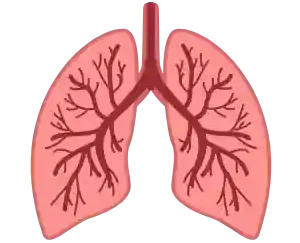Unlock your lung potential! Discover how the Fitness Lungs Test measures your lung health and performance effortlessly. Try it today!
Disclaimer: Do not use this test if you have breathing problems such as asthma and the flu. Also, if you drink alcohol or smoke in everyday life, please consult a medical professional.
Fitness Lungs Test
Test your lungs with this online inspection tool
Hold your breath to measure your lung capacity

Leaderboard
| # | Time (s) |
|---|---|
| 1 | 0.0 |
| 2 | 0.0 |
| 3 | 0.0 |
| 4 | 0.0 |
1. What is a Fitness Lungs Test?
The Fitness Lungs Test is a simple assessment designed to evaluate your lung capacity and respiratory efficiency. It helps you understand how well your lungs can support physical activity by measuring factors like breath-holding time, exhalation strength, or stamina during controlled breathing exercises.
2. Why should I take a Fitness Lungs Test?
This test can be a valuable tool for anyone looking to improve their fitness, as lung health directly impacts stamina, endurance, and overall physical performance. It’s especially useful for athletes, fitness enthusiasts, or anyone seeking to monitor their respiratory wellness.
3. How is the Fitness Lungs Test conducted?
The test typically involves activities like timed breath-holding, blowing into a device to measure lung volume, or performing simple exercises to observe breathing efficiency. Depending on the method, you might need to perform specific actions like deep breathing or exhaling forcefully into a balloon or spirometer.
4. Is the Fitness Lungs Test suitable for everyone?
Yes, this test is designed to be inclusive and can be taken by people of all ages and fitness levels. However, it’s important to follow instructions carefully and not overexert yourself, especially if you are new to physical fitness assessments.
5. Can I do the Fitness Lungs Test at home?
Absolutely! Many Fitness Lungs Tests are easy to perform at home using simple tools or no equipment at all. For example, you can test your breath-holding capacity or measure how many seconds you can exhale consistently.
6. What factors can influence my results?
Your results can vary based on your age, fitness level, and even environmental factors like altitude or air quality. Regular practice and maintaining a healthy lifestyle can significantly improve your scores over time.
7. How often should I take the Fitness Lungs Test?
It’s a good idea to take the test every few months to track your progress and observe improvements in lung capacity. Regular testing can help you set realistic fitness goals and stay motivated.
8. What are some tips for improving my lung fitness?
Practice breathing exercises: Techniques like diaphragmatic breathing or pursed-lip breathing can strengthen your lungs.
Engage in cardio workouts: Activities like jogging, swimming, or cycling enhance your lung capacity.
Stay hydrated: Proper hydration supports respiratory health.
Avoid pollutants: Minimize exposure to smoke or other air contaminants.
9. How can I use my Fitness Lungs Test results?
Your results can guide you in tailoring your workout routines. For example, if your lung capacity is lower than expected, you can incorporate exercises that emphasize breath control and endurance.
10. Is the Fitness Lungs Test the same as a medical test?
No, the Fitness Lungs Test is designed purely for fitness assessment and self-awareness. It does not diagnose, treat, or monitor medical conditions. For any medical concerns, you should consult a healthcare professional.
11. Are there tools to enhance the accuracy of the test?
Yes, tools like a spirometer or pulse oximeter can provide more precise measurements of lung capacity and oxygen levels. These tools are optional and not necessary for basic fitness assessments.
12. Can kids or elderly individuals take the test?
Yes, the test is safe for kids and elderly individuals as long as it is performed within their comfort zones and without pushing their limits.
13. Does smoking affect the test results?
Yes, smoking can negatively impact lung health, leading to reduced lung capacity and stamina. Regular testing can help smokers understand the impact and track improvements if they quit smoking.
14. Is it normal to feel breathless during the test?
Mild breathlessness may occur during certain exercises, but it should not cause discomfort. Always stop immediately if you feel dizzy, lightheaded, or overly strained.
15. How can I make the test more fun?
Incorporate the Fitness Lungs Test into a group workout session or set personal challenges to beat your previous records. Gamifying the process can make it enjoyable and motivating.
